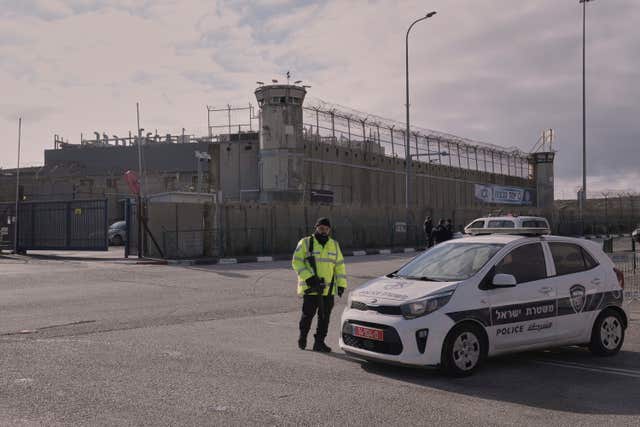
Detention camps opened by Israel following exposure of the treatment of Palestinian detainees seized in Gaza at another facility have themselves been criticised in new research.
Israeli human rights organisations that interviewed dozens of current and former detainees are now asking the same court that ruled on the original facility to force the military to fix the problem once and for all.
What the detainees’ accounts show, rights groups say, is that instead of correcting alleged abuses against Palestinians held without charge or trial, including beatings, excessive handcuffing, and poor diet and health care, Israel’s military just shifted where they take place.
“What we’ve seen is the erosion of the basic standards for humane detention,” said Jessica Montell, the director of Hamoked, one of the rights groups petitioning the Israeli government.
Asked for a response, the military said it complies with international law and “completely rejects allegations regarding the systematic abuse of detainees”.
The sprawling Ofer Camp and the smaller Anatot Camp, both built in the West Bank, were supposed to resolve problems rights groups documented at a detention centre in the Negev desert called Sde Teiman.
That site was intended to temporarily hold and treat militants captured during Hamas’ October 7, 2023, attack on Israel.
But it morphed into a long-term detention centre infamous for brutalising Palestinians rounded up in Gaza, often without being charged.

Detainees transferred to Ofer and Anatot say conditions there were no better, according to more than 30 who were interviewed by lawyers for Hamoked and Physicians for Human Rights-Israel.
“They would punish you for anything” said Khaled Alserr, 32, a surgeon from Gaza who spent months at Ofer Camp and agreed to speak about his experiences.
He was released after six months without charge.
Mr Alserr said he lost count of the beatings he endured from soldiers after being rounded up in March of last year during a raid at Nasser Hospital in Khan Younis.
“You’d be punished for making eye contact, for asking for medicine, for looking up towards the sky,” said Mr Alserr.
Other detainees’ accounts to the rights groups remain anonymous.
Their accounts could not be independently confirmed, but their accounts, given separately, were similar.
The Supreme Court has given the military until the end of March to respond to the alleged abuses at Ofer.


Comments: Our rules
We want our comments to be a lively and valuable part of our community - a place where readers can debate and engage with the most important local issues. The ability to comment on our stories is a privilege, not a right, however, and that privilege may be withdrawn if it is abused or misused.
Please report any comments that break our rules.
Read the rules hereLast Updated: 1st January 1970 12:00 am
Report this comment Cancel